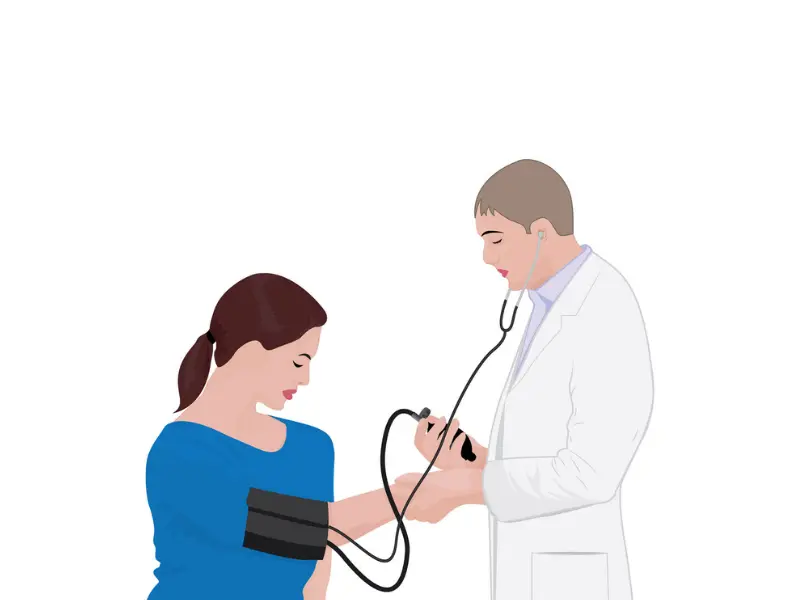High blood pressure, also termed as hypertension, is becoming a more common mental health disorder worldwide. It directly affects the body's arteries and plays a significant role in causing cardiac arrest in people.
Several studies have also revealed that specific factors or conditions associated with high blood pressure can amplify the risk of cognitive impairment and dementia. For instance, individuals who concurrently suffer from hypertension and depression or face financial challenges are more susceptible to cognitive difficulties.
High-blood pressure and Dementia
Dementia is typically caused by multiple factors affecting the brain, with strokes and Alzheimer's disease being common contributors to cognitive decline. Lowering blood pressure plays a crucial role in minimising the risk of dementia as it helps decrease the likelihood of strokes, which can lead to cognitive impairment.
It is important to note that these strokes, although often small and unnoticed, can have a cumulative effect. Experiencing multiple small strokes or a few larger ones significantly increases the chances of developing dementia. Thus, managing and lowering blood pressure becomes vital in reducing the risk of dementia and promoting brain health.
Hypertension Contribution to Cognitive Impairment and Dementia
Some of the factors of hypertension that contribute to Dementia and Cognitive Impairment are:
- Vascular damage: Prolonged high blood pressure can harm blood vessels throughout the body, including the brain's vasculature. This damage can impede blood flow, causing oxygen deprivation and nutrient deficiencies in brain cells, ultimately leading to cognitive impairment and an increased risk of vascular dementia.
- Stroke: Hypertension is a significant risk factor for stroke. Consistently elevated blood pressure strains blood vessels, making them more susceptible to blockages or ruptures. Interrupting blood flow toward the brain results in brain cell damage, memory loss, attention, concentration difficulties, and other cognitive deficits.
Small vessel disease: High blood pressure can contribute to developing small vessel disease in the brain. This condition damages the small vessels, impairing blood flow and oxygen delivery to brain tissue. This disease is associated with cognitive impairment, including problems with thinking, planning, and memory. - Accelerated brain aging: Chronic hypertension has been linked to accelerated brain aging. High blood pressure may cause structural changes in the brain, such as reduced brain volume and abnormalities in white matter. These changes can disrupt communication between brain regions and compromise cognitive function.
- Alzheimer's disease:The link between hypertension and Alzheimer's disease is complicated, but research suggests that it may raise the likelihood of acquiring Alzheimer's or speed its course. High blood pressure can lead to the accumulation of amyloid plaques & neurofibrillary tangles in the brain, which are classic symptoms of Alzheimer's disease. Furthermore, hypertension can exacerbate the negative effects of Alzheimer's pathology on the brain, leading to more severe cognitive impairment.
Hypertension Relation to Stress
Whenever an individual experiences stress, their body releases chemicals like adrenaline and cortisol, which increases heart rate and blood vessel constriction. If the habit of stress continues for a long time, it might lead to high blood pressure and certain heart conditions. The unhealthy coping mechanism is also responsible for furthering the adverse effects of stress. Individuals need to take care of their stress to avoid hypertension problems.
Conclusion
It is crucial to be on the look-out about the symptoms of hypertension and take steps to manage its impact. One of the highly influential and accessible ways to do this is through self-care and adopting a lifestyle that promotes reduced stress levels. By prioritizing self-care practices and consciously minimizing stress, individuals can play an active role in maintaining their blood pressure within healthy limits.
If you're someone who wants to incorporate a healthy lifestyle into their routine, then get connected with Solh Wellness. We are one of kind mental health platform that provides the tools and solutions through which an individual can take care of their mental health on their own. Download the Solh App and take a step towards better mental health and life.



